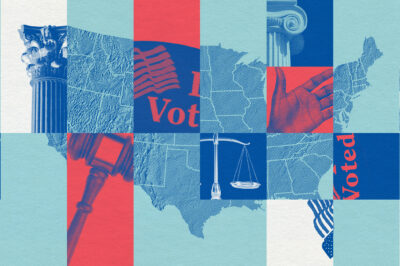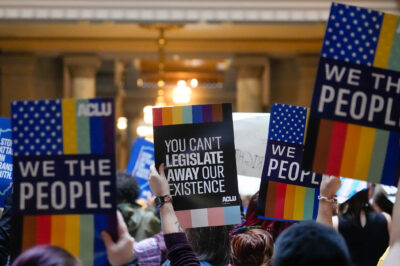Imagine: your family takes a road trip to Zion National Park in Utah. You’re only an hour away and didn’t notice the speed limit was reduced to 65mph. You see the flashing lights of a police cruiser and realize your mistake. Embarrassed, but not concerned, you’ll explain to the officer you’re from out of town and hope the ticket doesn’t cost too much.
The officer approaches the car to collect your license and registration. As you wait with your family, you realize the officer has been in his car for an unusual amount of time. Finally, he comes over and says something about your license not being adequate proof of your immigration status and asks if you’re a citizen of the United States. “Born and raised,” you reply, this being the first time you’ve been asked that question by a policeman. Something about your response, or the way you look, or perhaps your license picture from 20 years ago when you had brown hair instead of gray, makes the officer tell you he has to run some checks on your ID – “standard procedure.” You start to protest, baffled at what you’ve possibly done wrong, as you wait on the side of the road to see what might happen next.
Seem outrageous? Un-American? Unconstitutional? This could happen to you or any other person traveling, living or working in Utah, if Utah’s new immigration enforcement law, H.B. 497, goes into effect this week.
Utah House Bill 497 is the Illegal Immigration Enforcement Act signed by Utah Gov. Gary Herbert in March. By imposing complex authorizations and mandates on law enforcement officers to demand documentation reflecting immigration status from individuals they stop, detain, or arrest, H.B. 497 creates an unprecedented burden upon every individual in Utah, citizens and non-citizens alike. During a stop, a person must be able to produce one of four types of identity documents to be presumed lawfully present in the country. However, even if an individual has a qualifying document proving his or her citizenship, an officer may use his or her own discretion to question the validity of an ID and even take a person down to the station for an investigation into the person’s citizenship status. If an individual cannot produce a qualifying identity document, law enforcement officers are authorized, and in many cases required, to detain the individual and attempt to verify his or her immigration status.
By mandating that officers inquire about the immigration status of every individual they stop for traffic violations, jaywalking, or even littering, H.B. 497 would fundamentally change the day-to-day operations of local law enforcement. H.B. 497 would undermine the mission of local police to enforce criminal statutes and ordinances by injecting an immigration enforcement directive into every police encounter. As Salt Lake City Police Chief Chris Burbank has pointed out, when local police focus on immigration violations, entire segments of the community will be afraid to report crimes. In a state where the rates of serious crimes, such as homicide and sexual assault, have been increasing, officers should not focus on low-level immigration offenses while attention is diverted from serious issues facing their communities.
The ACLU does not want our country to become a place where “show me your papers” is a common police call and racial profiling is sanctioned under the law. That is why last week we filed a class action law suit and preliminary injunction challenging H.B. 497. Today, the first hearing in the case to block the law will take place in Salt Lake City.
There are many reasons why immigration enforcement is a matter of federal, and not state, authority. Unfortunately, Utah is not alone in its attempt to usurp immigration authority from the federal government. States like Georgia, Indiana and Alabama have plans in the works to develop their own immigration laws, each of which will likely be challenged on the same grounds as Arizona’s infamous S.B. 1070. Unless we plan to live in a society where the police can ask us to “show our papers” at any moment, we must not open the door to welcome the sort of police power and disregard for individual rights that laws like Utah’s H.B. 497 would bring.
Learn more about immigrants’ rights: Subscribe to our newsletter, follow us on Twitter, and like us on Facebook.



